Table of Contents
The popularity of cold therapy has spread far beyond the boundaries of winter swimmers’ communities in recent years, mainly due to its wide range of positive effects on our health. Almost everyone who engages in biohacking with a desire to become the best and healthiest version of themselves uses cold therapy as one of the first tools on the way to amplify their life potential. However, it is not about some extreme performance in the form of winter hiking only in shorts and socks or an almost two-hour stay in a tub of ice as in the case of the most famous iceman Wim Hof. It is a gradual process of finding your way to cold water therapy.
Ancient civilizations have already known the power of the cold, which we are currently defending ourselves against. We are fighting it with heating system in the house, heated seats in a car, or layered clothing. Who in life has never been reminded by his mother to dress properly, otherwise there is a risk getting sick? I dare say we’ve all heard something like that. But this statement is not entirely true and two warm layers under the coat during the winter are not necessary. [1-3]
What benefits can cold exposure bring you?
Are you scared of taking a cold shower in the morning or throwing a sweater knitted by your grandma somewhere between old clothes? You are not the only one, when my alarm clock rings, I always feel like I could sleep for at least two more hours. But a cold shower always proves me wrong and my morning is much more energetic and productive afterward. I would say it’s even a better kick-starter than a morning coffee which you drink with your eyes closed. Why is it worth “suffering” like this?
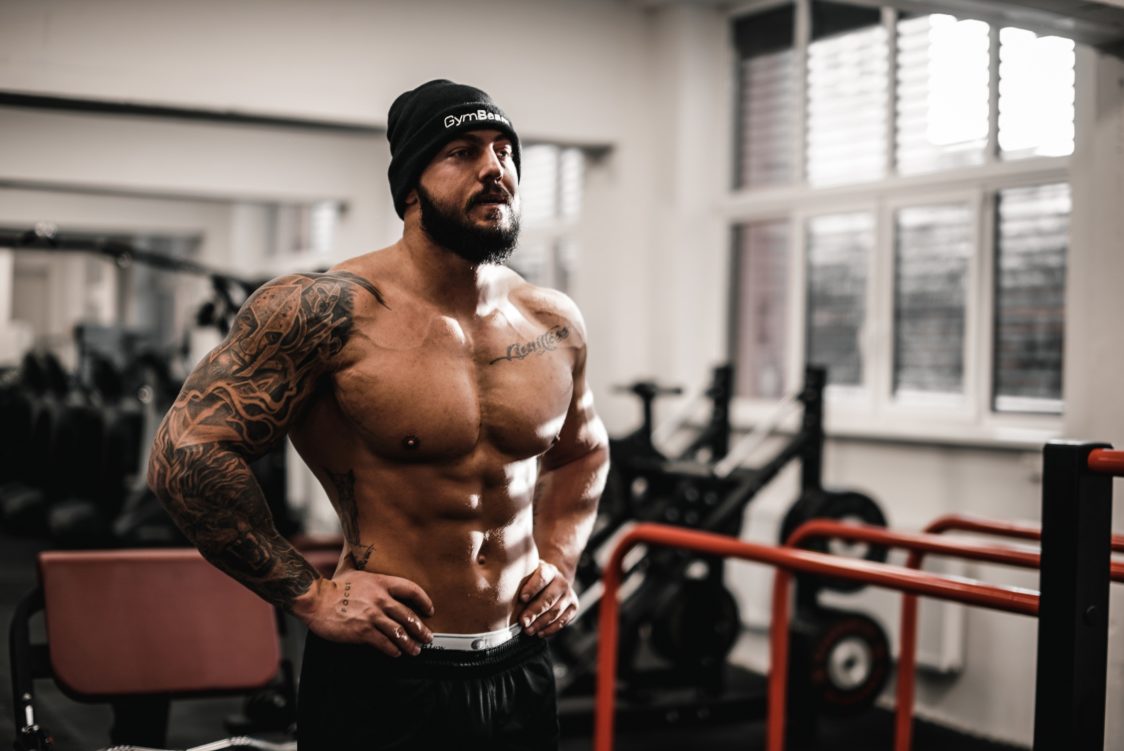
1. Your immune system will be more resilient
Regular cold therapy can decrease the level of cortisol, stress hormone which can help you cope with the effects of long-term stress. It weakens the body’s defense system by reduced the production of immune cells. Cold showering will not only cause a decrease in cortisol but also an increase in the immune cells in the form of the white blood cells, monocytes, or interleukin [IL] -6. Thanks to this, the immune system can become more resilient and it will be prepared for a possible fight with an infection. [4–6]
Dutch researchers have investigated whether it is possible to positively influence the body’s immune response to bacterial infection through cold showering, meditation, or breathing exercises. And they found it possible. Study participants who practiced one of these techniques experienced fewer symptoms of the disease and also had higher levels of anti-inflammatory agents in their blood than anti-inflammatory cytokines in response to infection. Researchers have also confirmed a higher resistance to stress in the case of cold showering. [7]
Another study carried out on 3,018 people found that people who regularly take cold showers, take 29% less sick days at work or school than those who do not. [8]
If you would like to learn other methods of how you can strengthen your immune system, read our article 15 Ways to Strengthen Your Immune System and Protect Health.
2. You will have a better mood
Thanks to the increased production of endocannabinoids, noradrenaline, and endorphins, your mood might improve after taking a cold shower. Cold water therapy in the form of a cold shower with a temperature of 20 °C (which, to be honest, is not so cold) has proven to be effective even in reducing the symptoms of the level of stress, depression, and anxiety. But remember that your mental attitude and mindset are also important. You are more likely to achieve better results with an optimistic rather than a negative mindset. [9-10]
However, it is definitely not a substitute for the systematic treatment of depression and other mental illnesses, but an additional remedy. If you want to learn more about the relationship between food and mood, read our article Can Diet and Food Choices Improve Your Mood?

3. You will be more alert, concentrated and energized before exercise
Cold water can also help in cases where you feel tired during the day, but still need to stay alert, be focused on work, study, or you have a workout session on your schedule. It is responsible for the increased production of a group of hormones called catecholamines, which will pleasantly energize you for mental and physical performance. You may experience increased heart and breathing rate and blood pressure. Personally, I can confirm that I have not yet been able to breathe calmly under running cold water, as during meditation or breathing exercises. [11]
4. You may also feel pain relief
According to the work of American scientists, cold water has analgesic effects, and can thus help in the treatment of various types of pain. Other authors also explain this fact by the increased production of endorphins, which suppress subjectively perceived pain. [11–12]
You might be interested in these products:
5. Improve and speed up regeneration and reduce muscle soreness after training
You may have heard or even seen photos of top athletes, NHL hockey players, or professional football players immersed in a tub full of ice after their training. They do this not only because of the Instagram photo but also because it accelerates regeneration by reducing damage and muscle pain after training (DOMS) and the reducing fatigue. In this case, contrast therapy in tub is most often used, in which one minute interval of stay in cold water (10–15 °C) alternates with one minute stay in warm water (> 36 °C) or one minute stay interval in cold water (10–15 °C) alternating with one-minute rest “without water” (ambient temperature). It is most effective in this respect to immerse the lower half of the body or the whole body into a tub of water, but a cold shower can also serve well, although the effect will not be so significant. [13–15]
Cold water therapy (contrast therapy or ice bath) should not be done by strength athletes who want to grow muscle mass. Cold water after training has a negative effect on training adaptation and subsequent muscle growth. However, a cold shower would not affect the growth of muscle mass, so you can continue with cold water showering. [16]
The increasingly popular cryotherapy and traditional sauna, which can even increase the concentration of growth hormone, is also used to support regeneration and strengthen immunity. [17–18]
If you want to learn more about other regeneration techniques, read our article The Best Techniques for Regeneration, Muscle Soreness and Fatigue After Training.
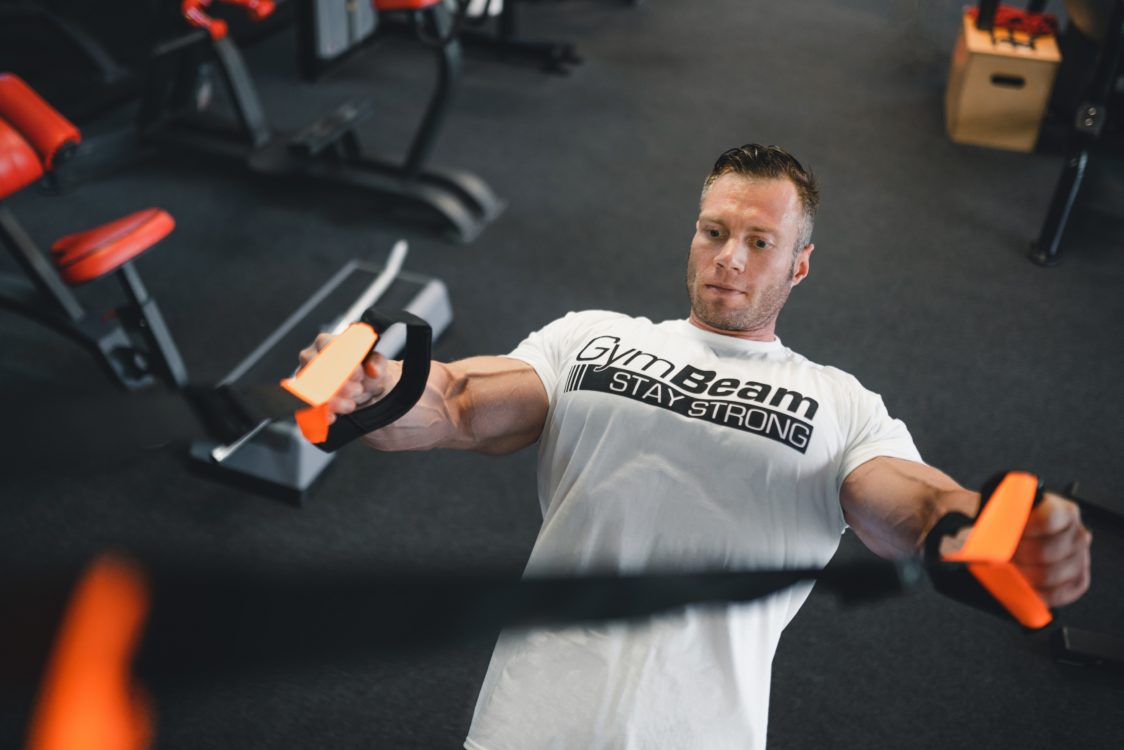
6. You cool the body faster after exercise in a hot environment
After an exercise in a hot environment, cold water with a temperature of about 10 °C can “cool” the overheated organism twice as fast as in the case of natural cooling without cold water. You will appreciate this fact, especially in the summer months, when due to high temperatures, training and running are becoming more and more challenging, and thus exposing the body to a greater load. [19]
7. You will achieve better blood circulation and possibly healthier skin
The ambient temperature which is lower than our natural body temperature forces the body to work a little more intensely to maintain the physiological temperature. Cold water causes the narrowing of the blood vessels (vasoconstriction) and speeds up the work of the circulatory system to maintain the temperature of the body. Regular cold showering can thus make the blood circulation more effective. You can achieve an even greater positive effect on blood circulation by alternating cold and hot shower intervals, during which the circulatory system “shrinks and expands”, and you can improve the body’s blood flow, which can also have a positive effect on skin quality.
“Contrast therapy (alternating hot and cold water) can improve blood flow through the small blood capillaries that lie close to the skin and supply it with nutrients to keep it firm and supple. At the same time, better blood circulation can improve the function of fibroblasts, which are the cells that produce the skin’s main structural protein, collagen,” Georgios Tzenichristos, a sports scientist focusing on skin health, stated for the Daily Mail.
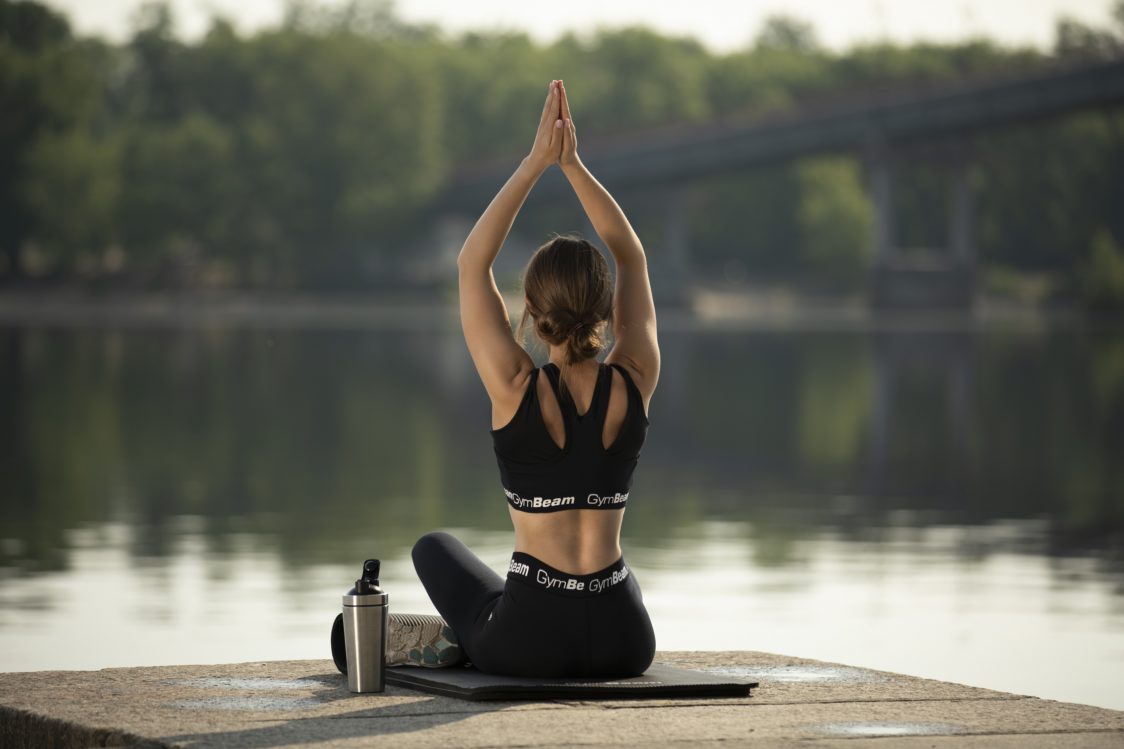
How to start with cold exposure and what are its possibilities?
Cold exposure offers a number of benefits, it is up to you whether you give it a chance, and thus support your body’s defense, better mood, or readiness for work, study, or sports performance. Don’t worry, you don’t have to google the nearest river or lake, where you can swim even in winter, and look for an axe to break the ice.
1. Start wearing fewer layers of clothing
Have you ever noticed people wearing a short-sleeve T-shirt or just a thin sweatshirt in the winter? They may have forgotten their jackets somewhere, but they are probably voluntarily exposed to the cold. For a start, all you need to do is analyze your daily outfit and think about what could be left at home. In the fall and winter, it is no exception that people wear a tank top, a T-shirt, a warmer T-shirt, a sweater, and a jacket. Leave one layer at home that will work best for you, and after about a month, think about whether you really need to wear that itchy and warm sweater from the sale.
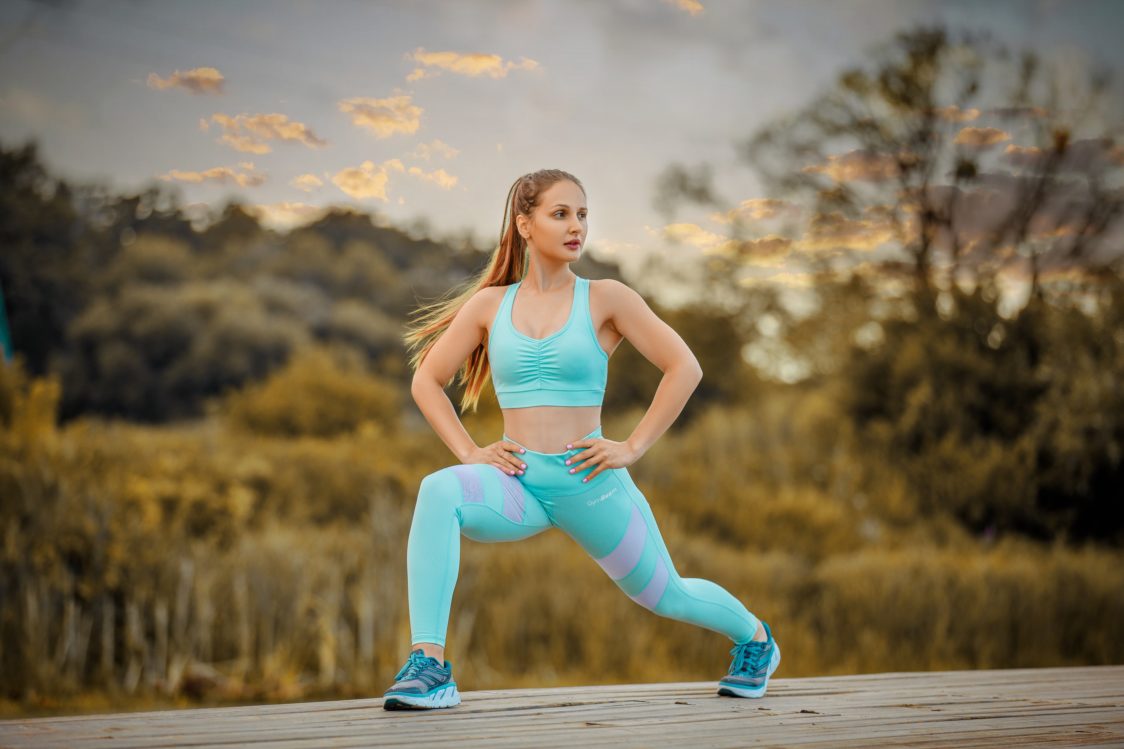
2. Set the heating to a lower level
These days, everybody has a heating system in the house and all you have to do is turn the thermostat, making it is easy to pamper yourself with warmth. On the other hand, there is also no need to freeze at home and try to adapt to it. According to the WHO, the temperature in the household should not fall below 18 °C for healthy adults and the temperature should be around 20 °C for the elderly or young children.
The temperature in the bedroom during sleep can be even lower, between 15–18 °C in a ventilated room. You may have noticed that if you forget to turn off the heating in the bedroom and sleep in an environment that is too warm, you will wake up in the morning as tired as when you went to bed in the evening.
See how many degrees your heating is set in your home and adjust the thermostat in small steps if necessary. A bonus might be the money you will save on heating.
3. Use the magic of a cold shower
You don’t have to take a cold shower right after waking up with your eyes closed and suffer for several minutes. To be honest, I can’t really imagine that either.
Just start with a hot shower and gradually lower the water temperature to a point where it will be neither hot nor cold for you. Then mentally prepare for the fact that it will be cold, itchy and you will want to run away, but with a firm mind and deep breath, you will manage everything. Turn on the cold water and expose the whole body, including the head, to cold shower, and it will definitely wake you up. For starters, it is enough to hold for only 10 seconds, but gradually you should work your way to about 2–5 minutes. After the shower, a kick of energy and endorphins is guaranteed.
4. Give a chance to cold water bath
A cold water bath is a slightly bigger step towards cold water therapy. You can also use the mentioned protocol in the form of alternating a minute interval in cold water (10–15 °C) with a minute of rest interval for 15 minutes. Just immerse yourself in the bathtub and experiment with what you can handle. Real lovers of cold can pour all the ice from the freezer into the bathtub.
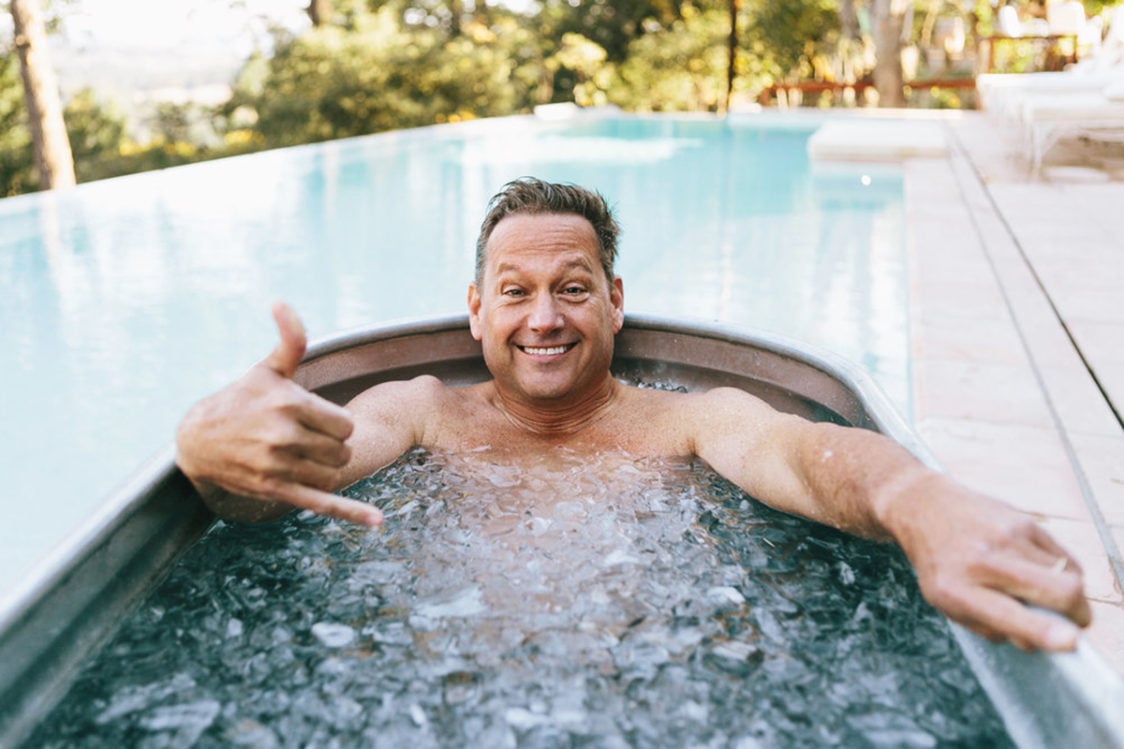
5. You can also try cold water swimming in a pond, lake, dam, or stream
Swimming in cold or icy water in autumn or spring is a much more advanced matter. Therefore, with the whole body being immersed in water and simultaneous swimming, it is considered to be the most complex type of cold therapy. Before you reach this point, you should already have some experience with cold exposure. Also, given the potential risk of a cold and the overall danger, it’s a good idea to join a bunch of brave people who go cold water swimming near your home. A few minutes in cold water will be enough. Immediately after cold water swimming, change into dry and warm clothes, wear gloves, a hat, and have a hot drink with something good to eat.
How long should you stay in the cold water?
Since you will feel every degree of water, a few minutes are a maximum for beginners. Even for more experienced cold water swimmers, the stay in the water is several minutes, a maximum of 30 minutes in water above 8 °C for experienced winter swimmers. For beginners, it can take a maximum of up to 10 minutes. If the water temperature is even lower, it should take a few minutes. Remember that from a psychological and safety point of view, cold water swimming in groups is better.
What is cold and ice water according to the rules of winter swimming?
- Cool water: 8.1 °C and above
- Cold water: 4.1–8 °C
- Ice water: 4 °C and below
What is the average water temperature in a particular month of the year?
The water temperature in Central Europe, specifically in the Czech Republic, peaks in the summer months (on average around 25 °C). Then the temperature gradually drops to a minimum during February slightly above 0 °C. Around mid-November, the water temperature in the Czech water reservoirs averages around 15 °C.
Before cold water swimming in open water, consult your physician, and make sure it is safe for you, especially if you have problems with cardiovascular system.
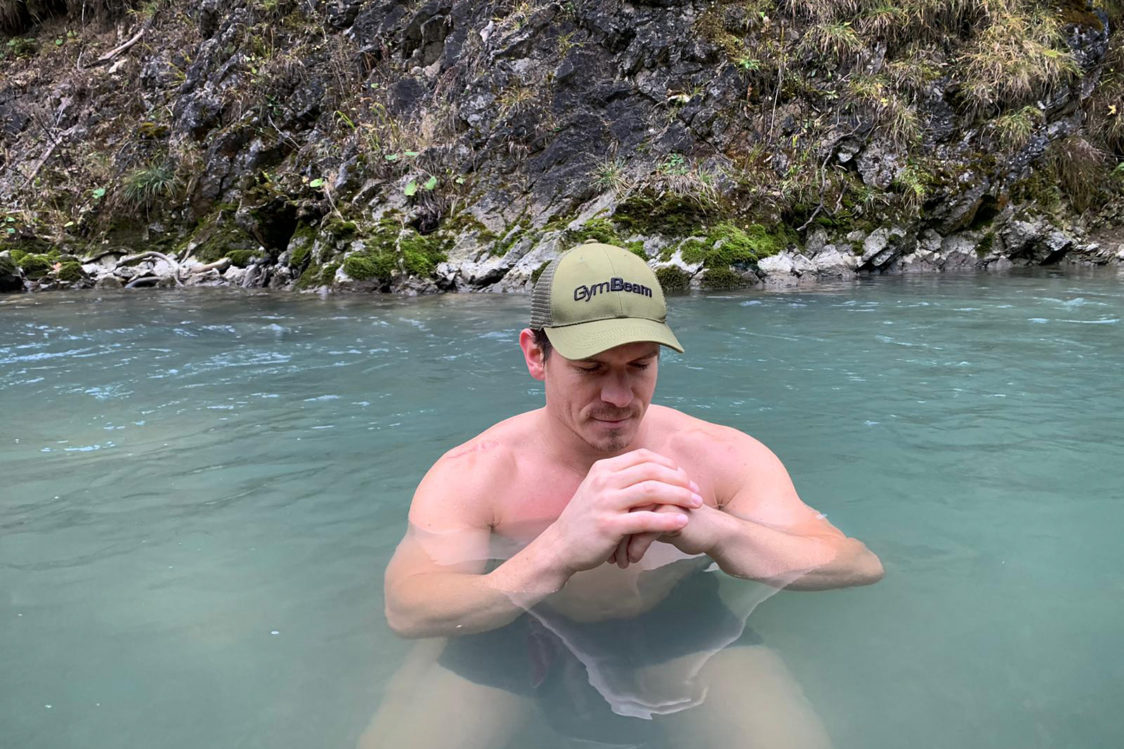
When (not) to go cold water swimming?
- If you do not feel well and feel that you might get ill or you already are ill, do not go cold water swimming. That would be counterproductive.
- If you have problems with your cardiovascular system, consult your physician first.
What can the ice man Wim Hof do with his body thanks to cold therapy?
What should you remember?
There are many ways to start with cold water therapy, all you need to do is choose your option and start doing it regularly. If you only have a cold shower once in a while, you will most likely not improve your body’s defense system, and you will not get the other benefits it offers. Cold water therapy is a popular tool for biohackers who try to fulfil their potential to the maximum and be efficient throughout the day. Among other things, the cold shower gives an energy boost, thanks to a better mood, you will have a smile on your face, and you will be pleasantly energized for work, study, or sports performance. “Cold is your warm friend,” as Wim Hof himself might have said.
Are you excited about cold water therapy or are you scared of it? If you have any experience with it, share it with us in the comments. If you liked the article and it was useful, support it by sharing, so that your friends can also learn about the benefits of cold water therapy.
[1] Wang, H., Olivero, W., Wang, D., & Lanzino, G. – Cold as a therapeutic agent – https://doi.org/10.1007/s00701-006-0747-z
[2] van Middendorp, J. J., Sanchez, G. M., & Burridge, A. L. – The Edwin Smith papyrus: A clinical reappraisal of the oldest known document on spinal injuries. – https://doi.org/10.1007/s00586-010-1523-6
[3] Gianfaldoni, S., Tchernev, G., Wollina, U., Roccia, M. G., Fioranelli, M., Gianfaldoni, R., & Lotti, T. – History of the Baths and Thermal Medicine. – https://doi.org/10.3889/oamjms.2017.126
[4] Leppäluoto, J., Westerlund, T., Huttunen, P., Oksa, J., Smolander, J., Dugué, B., & Mikkelsson, M. – Effects of long‐term whole‐body cold exposures on plasma concentrations of ACTH, beta‐endorphin, cortisol, catecholamines and cytokines in healthy females. – https://doi.org/10.1080/00365510701516350
[5] Manolis, A., Manolis, S., Manolis, A., Manolis, T., Apostolaki, N., & Melita, H. – Winter Swimming: Body Hardening and Cardiorespiratory Protection Via Sustainable Acclimation. – https://doi.org/10.1249/JSR.0000000000000653
[6] Dugué, B., & Leppänen, E. – Adaptation related to cytokines in man: Effects of regular swimming in ice-cold water. – https://doi.org/10.1046/j.1365-2281.2000.00235.x
[7] Kox, M., van Eijk, L. T., Zwaag, J., van den Wildenberg, J., Sweep, F. C. G. J., van der Hoeven, J. G., & Pickkers, P. – Voluntary activation of the sympathetic nervous system and attenuation of the innate immune response in humans. – https://doi.org/10.1073/pnas.1322174111
[8] Buijze, G. A., Sierevelt, I. N., van der Heijden, B. C. J. M., Dijkgraaf, M. G., & Frings-Dresen, M. H. W. – The Effect of Cold Showering on Health and Work: A Randomized Controlled Trial. – https://doi.org/10.1371/journal.pone.0161749
[9] Shevchuk, N. A. – Adapted cold shower as a potential treatment for depression. – https://doi.org/10.1016/j.mehy.2007.04.052
[10] Tulleken, C. van, Tipton, M., Massey, H., & Harper, C. M. – Open water swimming as a treatment for major depressive disorder. – https://doi.org/10.1136/bcr-2018-225007
[11] Bleakley, C. M., & Davison, G. W. – What is the biochemical and physiological rationale for using cold-water immersion in sports recovery? A systematic review. – https://doi.org/10.1136/bjsm.2009.065565
[12] Mooventhan, A., & Nivethitha, L. – Scientific Evidence-Based Effects of Hydrotherapy on Various Systems of the Body. – https://doi.org/10.4103/1947-2714.132935
[13] Higgins, T. R., Greene, D. A., & Baker, M. K. – Effects of Cold Water Immersion and Contrast Water Therapy for Recovery From Team Sport: A Systematic Review and Meta-analysis. [https://doi.org/10.1519/JSC.0000000000001559
[14] Versey, N. G., Halson, S. L., & Dawson, B. T. – Water Immersion Recovery for Athletes: Effect on Exercise Performance and Practical Recommendations. – https://doi.org/10.1007/s40279-013-0063-8
[15] Yeung, S. S., Ting, K. H., Hon, M., Fung, N. Y., Choi, M. M., Cheng, J. C., & Yeung, E. W. – Effects of Cold Water Immersion on Muscle Oxygenation During Repeated Bouts of Fatiguing Exercise. – https://doi.org/10.1097/MD.0000000000002455
[16] Roberts, L. A., Raastad, T., Markworth, J. F., Figueiredo, V. C., Egner, I. M., Shield, A., Cameron-Smith, D., Coombes, J. S., & Peake, J. M. – Post-exercise cold water immersion attenuates acute anabolic signalling and long-term adaptations in muscle to strength training. – https://doi.org/10.1113/JP270570
[17] Leppäluoto, J., Huttunen, P., Hirvonen, J., Väänänen, A., Tuominen, M., & Vuori, J. – Endocrine effects of repeated sauna bathing. – https://doi.org/10.1111/j.1748-1716.1986.tb08000.x
[18] Pilch, W., Szygula, Z., & Torii, M. – Effect of the sauna-induced thermal stimuli of various intensity on the thermal and hormonal metabolism in women. – https://journals.indexcopernicus.com/search/article?articleId=35690
[19] Zhang, Y., Davis, J.-K., Casa, D. J., & Bishop, P. A. – Optimizing Cold Water Immersion for Exercise-Induced Hyperthermia: A Meta-analysis. – https://doi.org/10.1249/MSS.0000000000000693
